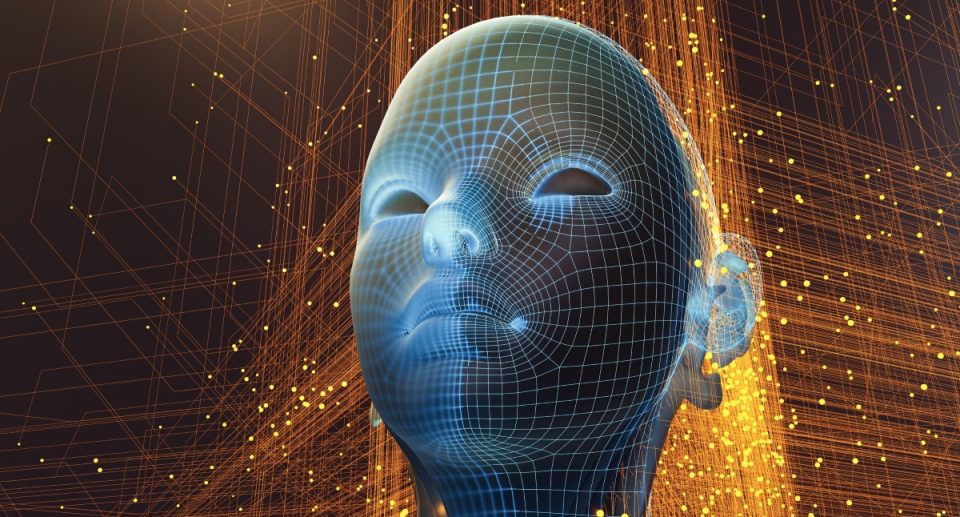The Role of AI in Senior Healthcare: What’s Next?

As we navigate through the advancements in healthcare, one technology is making waves in improving care for seniors: Artificial Intelligence (AI). From diagnosing diseases to managing medications, AI is transforming senior healthcare, making it more efficient, personalized, and accessible. For seniors, AI has the potential to enhance their quality of life, allowing them to age with dignity and independence. But what does the future hold for AI in senior healthcare? Let’s dive into how AI is currently shaping the field and explore what’s next.
AI in Healthcare: A Quick Overview

Artificial Intelligence, or AI, refers to machines’ simulation of human intelligence. In healthcare, AI can analyze vast amounts of data, learn from it, and make decisions with minimal human intervention. This ability allows healthcare providers to make more accurate diagnoses, streamline operations, and offer patients better, more personalized care.
For seniors, AI is increasingly becoming a tool that can help manage chronic conditions, assist with daily activities, and provide peace of mind. Here are some key areas where AI is already playing a significant role:
1. AI for Early Disease Detection

Early disease detection is one of the most promising applications of AI in healthcare. AI-powered algorithms can analyze medical images, such as X-rays, MRIs, and CT scans, to detect conditions like cancer, heart disease, and Alzheimer’s earlier than traditional methods.
Early detection is crucial for seniors, as it allows for timely intervention, better treatment outcomes, and, in many cases, a higher quality of life. AI can identify subtle patterns in health data that may be missed by human doctors, ensuring that seniors get the care they need before conditions worsen.
What’s Next?
As AI continues to evolve, we can expect it to become even more adept at predicting the onset of diseases. In the future, AI could analyze daily biometric data, such as heart rate and blood pressure, collected by wearable devices, offering seniors early warnings of potential health issues. This could lead to preventative care strategies tailored to each individual’s needs.
2. Personalized Medicine and Treatment Plans

AI is also revolutionizing how seniors receive treatment by enabling personalized medicine. Traditionally, treatments are developed based on generalized data, but AI can consider a person’s genetic makeup, lifestyle, and medical history to suggest customized treatment plans.
For example, if a senior is diagnosed with diabetes, AI could analyze their genetic predispositions, daily routines, and even dietary habits to recommend a treatment plan uniquely suited to them. This type of personalized care reduces the likelihood of adverse reactions to medications and increases the effectiveness of treatments.
What’s Next?
Soon, we may see AI take personalization even further by integrating data from wearable health monitors, home assistants, and medical devices. Imagine an AI assistant that monitors a senior’s health in real time, sending updates to doctors and caregivers and adjusting treatments or medications accordingly. This level of customization could help seniors stay healthier longer while reducing hospital visits.
3. AI-Powered Home Healthcare Assistants

Many seniors prefer to age in place, staying in their own homes for as long as possible. AI is making this more feasible through virtual home assistants. Devices like Amazon Alexa or Google Assistant, equipped with AI, can already set reminders for medication, help with scheduling doctor’s appointments, and even assist with physical exercises.
For seniors with mobility issues or cognitive impairments, AI-powered home healthcare assistants can help monitor their well-being, alert caregivers to falls or unusual behavior, and ensure a safer living environment.
What’s Next?
As AI continues to evolve, home healthcare assistants will likely become more advanced. Future AI systems could be equipped with facial recognition to detect changes in a senior’s mood or appearance, signaling early signs of depression or illness. Additionally, these systems could adapt to seniors’ preferences and routines, offering companionship and cognitive stimulation through personalized interactions.
4. AI and Mental Health Support

Mental health is an essential aspect of senior healthcare, particularly as many seniors experience isolation, loneliness, or cognitive decline. AI is making strides in providing mental health support to seniors by analyzing behavioral patterns and offering cognitive therapy.
AI-driven chatbots and virtual companions are becoming popular tools for providing mental health support to seniors. These AI programs can engage in conversations, offer mindfulness exercises, and provide companionship, helping to alleviate feelings of loneliness and anxiety. Some systems are also equipped with AI algorithms that monitor changes in speech patterns, which could indicate early signs of dementia or other cognitive impairments.
What’s Next?
The future of AI in mental health support will likely include more sophisticated emotional recognition capabilities. AI systems may soon be able to detect and respond to a senior’s emotional state through voice tone, facial expressions, and language used in conversations. This personalized support could be a game-changer in maintaining emotional and cognitive well-being.
5. AI for Medication Management

Seniors often take multiple medications, and keeping track of them can be overwhelming. AI can simplify this process by providing automated medication reminders and monitoring for potential drug interactions. Apps and devices that use AI can learn a senior’s medication schedule, send reminders, and even alert caregivers or doctors if doses are missed.
AI systems can ensure that medications are taken correctly for those with memory impairments, reducing the risk of serious health complications from missed doses or medication errors.
What’s Next?
As AI advances, medication management tools will likely become more integrated with other aspects of healthcare. Imagine an AI system that not only reminds seniors to take their medication but also monitors how their bodies respond to the treatment. This real-time data could be sent directly to healthcare providers, allowing for adjustments in dosages or medications without needing an in-person visit.
6. AI in Remote Monitoring and Telehealth

The COVID-19 pandemic accelerated the adoption of telehealth, but for seniors, visiting a doctor remotely is just one part of the equation. AI is taking telehealth to the next level by enabling remote monitoring. AI-powered devices can track vital signs, sleep patterns, and physical activity levels, providing healthcare providers continuous updates on seniors’ health status.
AI-enabled remote monitoring is a lifeline for seniors who live in rural areas or have limited mobility. It ensures they can receive care without traveling, reducing the burden on seniors and the healthcare system.
What’s Next?
In the future, AI-driven telehealth systems could offer even more robust remote care. AI could analyze a senior’s health data in real time, flagging potential concerns and automatically scheduling a telehealth consultation. Seniors may also have access to AI-driven health apps that offer instant advice based on their symptoms, reducing the need for unnecessary doctor’s visits.
Embracing AI in Senior Healthcare: The Road Ahead

The future of AI in senior healthcare is incredibly promising. While some may worry that AI will replace human doctors, the reality is that AI is a tool designed to enhance care, not replace it. For seniors, this means better access to personalized treatments, improved mental health support, and the ability to maintain independence at home for longer.
However, as with any new technology, there are challenges to overcome. Concerns about data privacy, the learning curve of using AI-driven devices, and ensuring that these technologies are accessible to all seniors will need to be addressed.
In the coming years, AI can become an even more integral part of senior healthcare, offering innovative solutions that improve health outcomes and quality of life. Seniors who embrace AI-driven technologies will likely enjoy greater autonomy, better health, and peace of mind, knowing they are receiving the best care possible.
As AI continues to evolve, the possibilities are endless, and the future of senior healthcare looks brighter than ever.
Conclusion

AI’s role in senior healthcare transforms how we think about aging and medical care. From early disease detection to personalized treatment plans and mental health support, AI makes healthcare more accessible and effective for seniors. The road ahead is full of exciting possibilities, and seniors aged 45 to 75 are poised to benefit from these advancements in ways we can only begin to imagine. Embracing AI could mean a healthier, happier, and more independent future for seniors everywhere.





